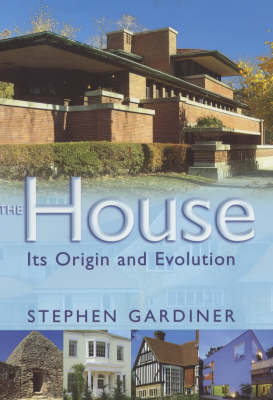The new edition of Stephen Gardiner's highly readable history of the house comes at a time of crisis in domestic architecture. The author clearly shows how the collapse of traditional values since the Second World War has been mirrored by the new architectural emphasis on materialism, bringing a disregard for the lessons of the past, and a loss of contact, both with human requirements and with nature as a source of inspiration. He offers an enlightening overview of the development of house and home, since the caves of early man, and the rich profusion of indigenous styles that has since emerged, from huts of mud and reeds, Ziggurats, Chinese underground villages with sunken courtyards, multistoreyed tenements in Ancient Rome, Japanese designs that blend with nature, through the Palladian, Arts and Crafts and, more recently, the rediscovery of a more human scale, and the importance of the frame, in particular in the designs of Le Corbusier and Frank Lloyd Wright. After the later twentieth century's violent swings from tower blocks to Post-Modernism and neo-traditionalism we face a new danger, the creeping sprawl that is swallowing up much of our beautiful countryside.
Recognising this threat, the author highlights a strand of hope, a vein of architectural excellence that runs through the chaotic post-war picture and points the way ahead.
- ISBN10 1841192449
- ISBN13 9781841192444
- Publish Date 26 September 2002 (first published 18 September 2002)
- Publish Status Transferred
- Out of Print 6 September 2005
- Publish Country GB
- Publisher Little, Brown Book Group
- Imprint Constable
- Edition 2nd Revised edition
- Format Hardcover
- Pages 352
- Language English
